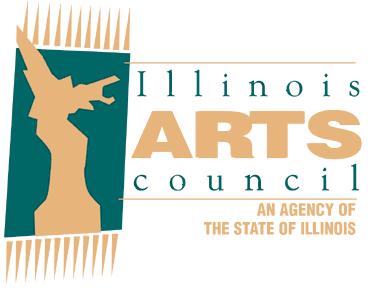NSCS June 2006
PROGRAM NOTES
By Donald Draganski
Most listeners are familiar with
Robert Schumann primarily as a composer of piano music, chamber
music and lieder, in addition to his well-known symphonies and
piano concerto. It may therefore come as something of a surprise
to learn that Schumann secured his international reputation with
his oratorio, Das Paradies und die Peri, composed
in 1843 and set to a text by the Irish poet Thomas Moore.
In that year the thirty-three-year-old
composer had already composed over 150 songs, three string quartets,
his first symphony, and a veritable library of piano music. He
was also editing the Neue Zeitschrift für Musik, a
journal that he had founded nine years earlier. A growing family
(he and Clara would eventually produce a brood of seven children)
made further demands on this phenomenally busy man's time and energy.
(It should also be noted that Schumann suffered from frequent bouts
of manic-depression. During his active periods he produced one
work after another in quick succession with amazing speed and alacrity;
but when he suffered through his spells of depression - he referred
to them as "turbid melancholy" - he would brood for months in a
state of paralytic inactivity.)
Schumann had encountered Thomas
Moore's poetry many years earlier, and in 1841 the composer's boyhood
friend Emil Flechsig suggested adapting Moore 's Lalla Rookh, which
he had translated into German, as a suitable libretto for an oratorio.
Schumann eagerly agreed and, in a letter to a friend, wrote, "At
the moment I'm involved in a large project, the largest I've yet
undertaken - it's not an opera - I believe it's well-nigh a new
genre for the concert hall. I plan to put all my energy into it
and hope to have finished it within a year." Although a few interruptions
slowed his work a bit - he complained of a larcenous cook who stole
fifty bottles of wine from his cellar - he completed the oratorio
on the 16 th of June, 1843.
Thomas Moore, the Irish poet whose
work so inspired Schumann, was born in Dublin in 1779. He was the
first Catholic to be admitted to Trinity College , where he received
his degree in 1798. The next year he left for England and became
quite the social success in London , first as a singer, then as
an essayist and poet. A brief position as a deputy in the British
Admiralty took him to the United States and Canada . Shortly after
his return to England , he read a highly uncomplimentary review
of his poetry in which the writer referred to Moore as a "public
nuisance" and his poetry as "licentious." The ever-mercurial Moore
challenged the critic to a duel; both survived - the critic's pistol
was unloaded - and the two became fast friends. A long and productive
period followed, interrupted by a brief period of exile on the
continent to avoid debtor's prison. His last years were marked
by chronic money problems, although his straits were relieved somewhat
during his last years when he was awarded a Civil List pension.
He died in 1852.
Moore 's Lalla Rookh ,
published in 1817, consists of a series of oriental tales and stories,
with alternating verse and prose passages. It tells the story of
the emperor's daughter, Lalla Rookh ("Tulip Cheek"), who is traveling
from Delhi to Kashmir to be married to the king of Bucharia. During
the journey a Kashmiri poet, Feramorz, diverts the princess by
spinning four verse tales. Upon their arrival in Kashmir , the
young poet identifies himself as the very king to whom Lalla is
betrothed, and the work concludes with a traditional happy ending.
Of the four tales with which the
Kashmiri poet entertained the princess, Schumann chose the second, " Paradise
and the Peri," as the text for his musical setting. Peris, according
to Persian mythology, are fairy-like creatures who are the offspring
of fallen angels and mortals. Although Peris have been entrusted
with the task of accompanying the saved to heaven, their questionable
parentage bars them from gaining admittance into the heavenly realm.
However, Moore 's Peri has been promised entry into heaven if she
can produce a suitable gift. In Part One, she presents the blood
of a warrior killed by a tyrant, but the guardians of Heaven dismiss
this gift. In Part Two, the Peri brings back the sighs of a young
maiden who died in the arms of her beloved during a time of plague;
this gift is also found wanting, But in Part Three, the gatekeeper
to Paradise accepts the final gift: the tears of a repentant criminal,
and the oratorio ends triumphantly as the Peri is ushered into
paradise.
Upon completion of the oratorio,
Schumann wrote the following in his diary: "On June 16 th my Peri
was completed after several days of strenuous work. What a great
joy! I don't know of anything similar in the musical repertory.
I don't like to write or speak about my own works; my wish is that
they will have a good effect on the world and secure for me the
loving memory of my children."
The work received its premiere six
months later at the Leipzig Gewandhaus, in December of 1843. The
public response was sufficiently favorable to schedule a second
performance a week later. Within five years the work had been presented
in most of the European music centers, and by 1848 it had even
reached the shores of America , where it was performed by the American
Musical Institute in New York .
As John Daverio states in his excellent
biography of Schumann, "The Peri was the work that made
Schumann into an international, as opposed to a merely German phenomenon.
Not only was [Schumann] getting older; he was poised to develop
into a cosmopolitan figure."
© 2005 by Donald Draganski


